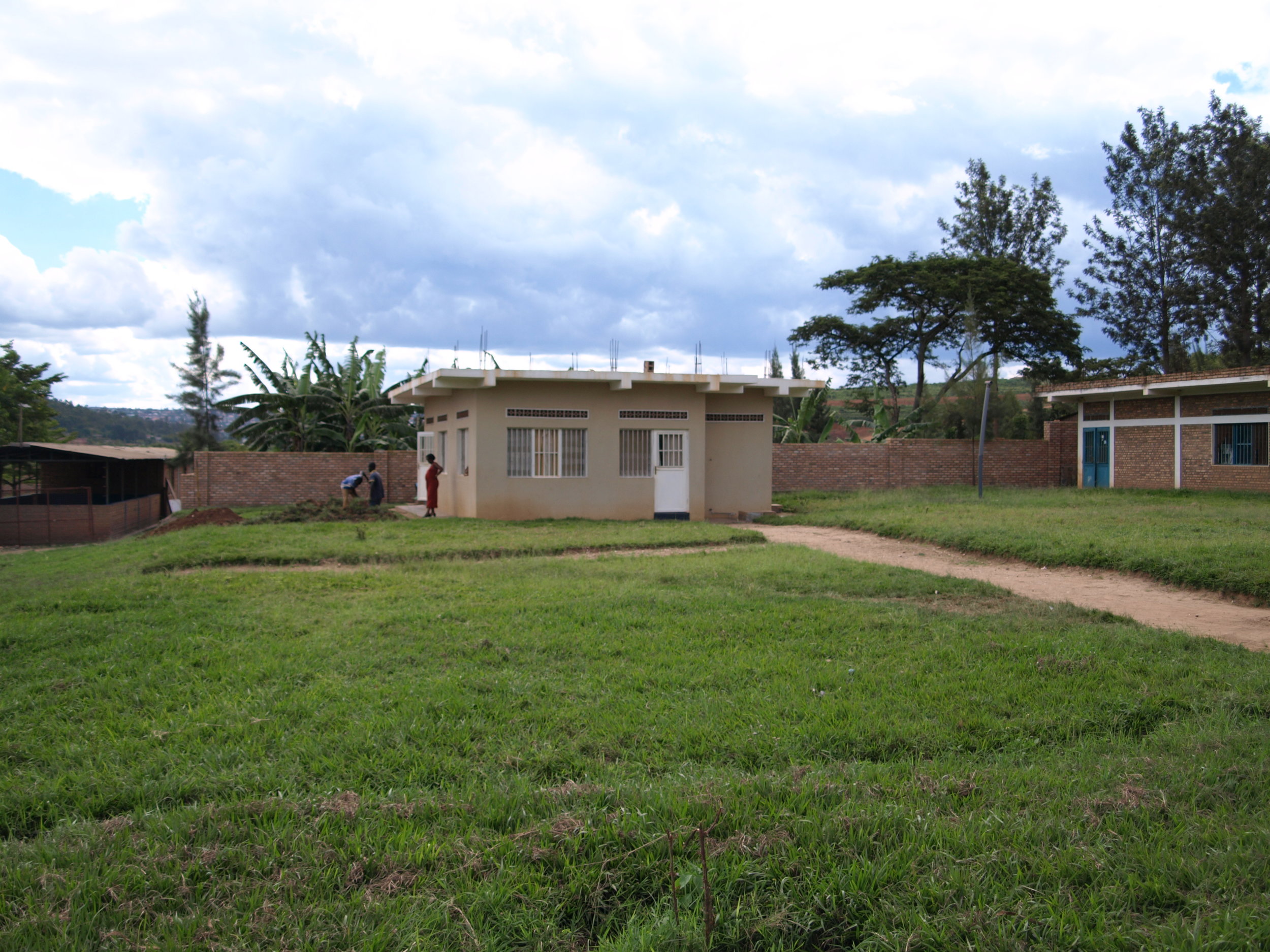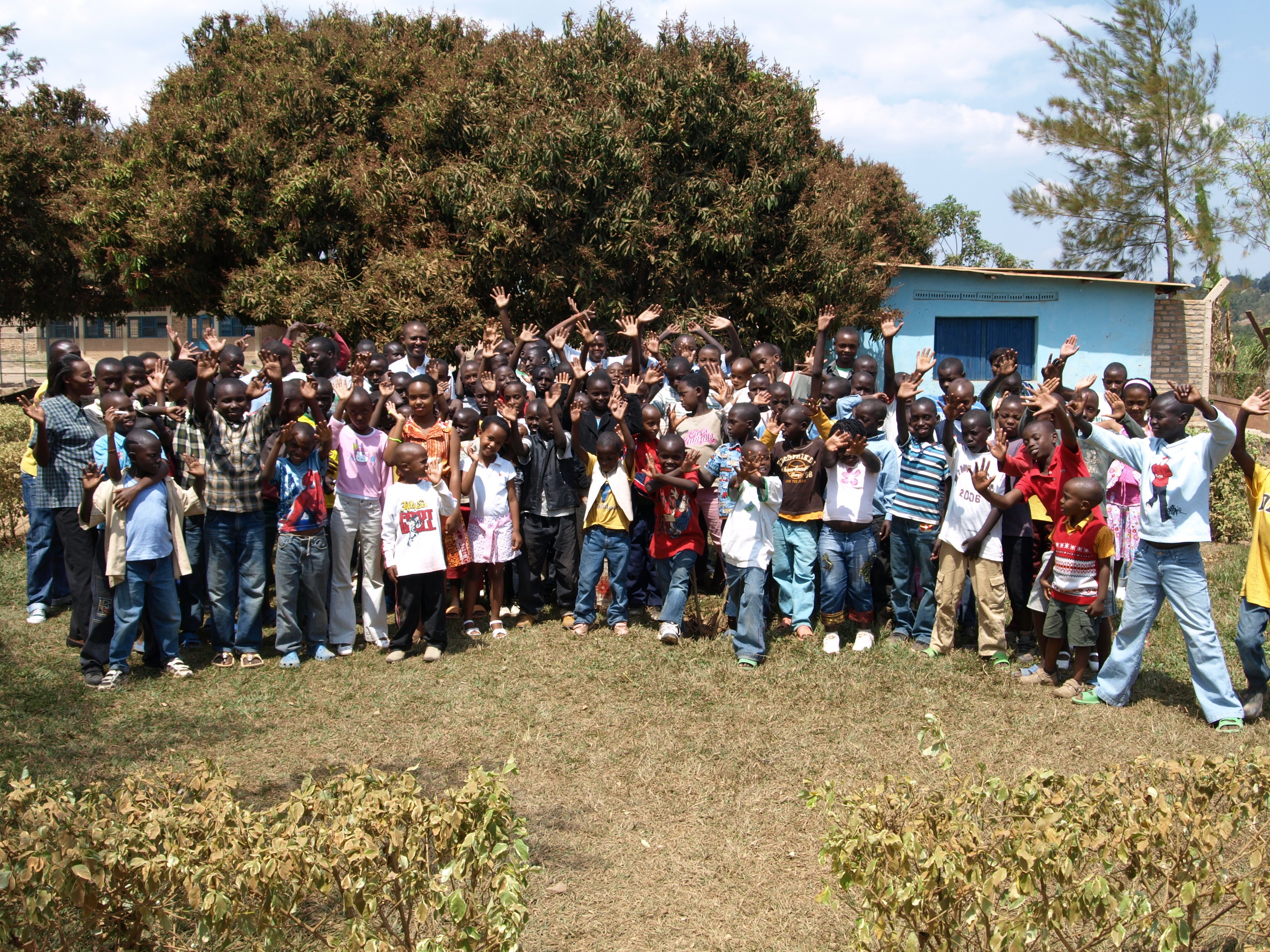Changing the World Through Children in Rwanda
 I first met Rafiki in November of 2010. He had traveled from Rwanda to visit our office in Santa Cruz and speak about his organization, Les Enfants de Dieu (meaning children of god in French). As a new volunteer, I was beyond excited to meet one of our grantee-partners and hear him speak about his work. I didn’t know, though, just how much his story would touch me.
I first met Rafiki in November of 2010. He had traveled from Rwanda to visit our office in Santa Cruz and speak about his organization, Les Enfants de Dieu (meaning children of god in French). As a new volunteer, I was beyond excited to meet one of our grantee-partners and hear him speak about his work. I didn’t know, though, just how much his story would touch me.
One evening during his weeklong stay, I offered to take him downtown to get some dinner and see more of Santa Cruz. Because he works with children living on the street in Rwanda, he was very interested in the homeless population in town. “America is so rich”, he said, “How is it possible that there are homeless people here?” I explained as well as I could, but none of my answers seemed adequate. This troubled me for the rest of our walk to the restaurant. It wasn’t the fact that I couldn’t provide him with a succinct answer; what troubled me was that I had never thought about how truly strange and unnecessary it was for a country with such wealth to have such a large homeless population.
We arrived at the restaurant and ordered our food. Rafiki asked for their spiciest hot sauce and told me, with a smile on his face, that it was not nearly spicy enough. He spoke with a calm passion about his organization, which provides holistic rehabilitation services for children formerly living on the street, with the aim of reintegrating them into their family or extended community. I asked what I’m sure was an obnoxious amount of questions, and he graciously answered them all.
When I asked him what it was that led him to this work, his demeanor shifted. His voice softened as he began to tell me about his experience of the 1994 genocide. He told me how he had been shot by someone who was a friend before the genocide commenced. He told me how he was thrown into a hole and left for dead. He told me how he spent days with dead bodies in that hole until he was taken out to get help.
He then recounted the experience of running into that man, some time after the genocide had ended. At this point, Rafiki was in close proximity to some soldiers, and had the option to have the soldiers shoot and kill the man who had shot him and left him for dead. He, instead, used that moment to forgive, and described this forgiveness as his liberation from that horrific experience. For him, “forgiveness is the champion of healing and inner contentment.” He realized that his calling was to work with children and youth to affect positive change in his community, which had been so violently torn apart. He is committed to “changing the world through young generations, a dream that seems to be crazy but possible.”
Hear Rafiki tell his story in this video: http://youtu.be/H27Tn3IqrUM
I went home and cried that night. Sure, I felt a tremendous sadness when I reflected on what he must have gone through, especially during those few days. But I don’t think that was where my tears were coming from. Rather I was touched because I was so deeply and thoroughly humbled by his choice to forgive, and ultimately use that experience to fuel his desire to help others.
Two and a half years later, I found myself in Rwanda. I had received a grant from the GIIP program at UCSC to assist with a Firelight digital storytelling project. I didn’t have much time in the capital of Kigali, but I had Rafiki’s phone number, and every intention of seeing him while I was there. I called him and he gave me instructions as to how to get to Les Enfants de Dieu by bus. This was my first experience with public transportation in Rwanda, and it was somewhat of a miracle that I made it there, getting only mildly lost along the way. As I walked down the long, orange-hued dirt road leading up to the compound, I wondered if Rafiki would remember me. He seemed to on the phone, but I thought that perhaps he was just being polite. When I saw him, though, it felt like running into an old friend. He clearly had remembered me, and all of my colleagues at Firelight, whom he asked about by name.
I spent a few hours with Rafiki that day. He proudly showed me around the compound of Les Enfants de Dieu, and told me of the many challenges involved with keeping this organization alive. He gleamed with excitement when told me how his wife was pregnant with their first child. When I left that day, we planned to meet again when I was back in Kigali to fly home. When that time came, I couldn’t get a hold of him, but I have a feeling that I will see my friend, Rafiki, again someday.
Special thanks to Rafiki Callixte for contributing to this blog



